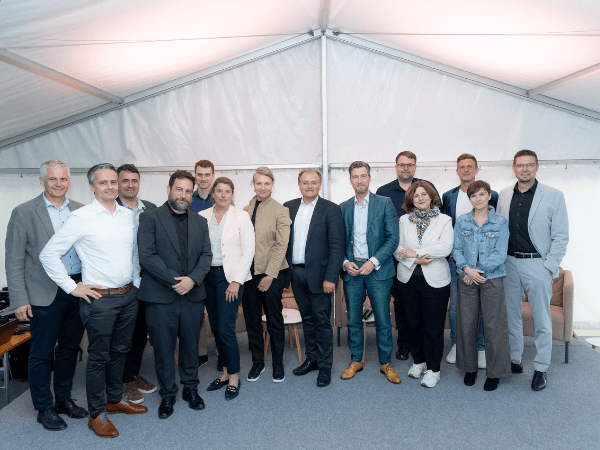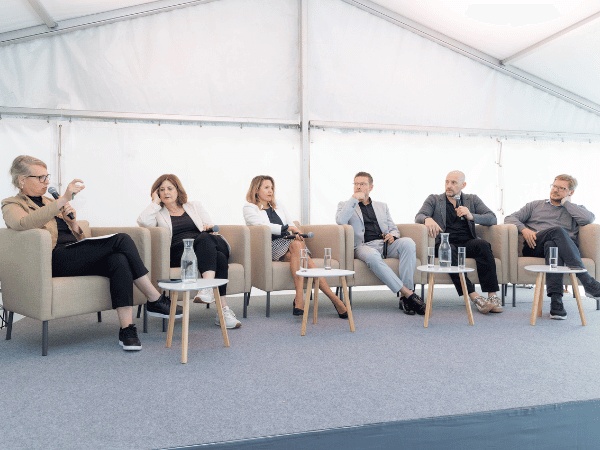Academic spin-offs are becoming increasingly significant in Austria. These startups, founded within research and university environments, convert research findings and technologies into marketable products and applications. They provide substantial benefits to the economy and society, while also delivering significant advantages to universities and research institutions.
The Austrian Institute of Technology (AIT) is one of Austria’s largest research organizations. AIT aims to spin off key solutions into the market and nurture scientists into becoming entrepreneurs. On June 12th, 2024, AIT hosted its inaugural Entrepreneur Day. This event was an excellent opportunity to highlight the support offered by key ecosystem players for spin-offs in Austria. Petra Wolkenstein of Konsultori moderated the panel on ecosystem players, shedding light on the support available.
Scaling Readiness
Are you ready to scale your company?
Scientists Becoming Entrepreneurs
While the worlds of scientists and entrepreneurs might seem different, they share more similarities than one might expect, as keynote speaker Klaus Marhold of Vienna University of Economics and Business noted. A structured and analytical approach, working in steps, testing hypotheses, and collaborating in teams are just a few commonalities. Becoming an entrepreneur might be easier for scientists than the reverse. The event provided ample encouragement for scientists to consider this career path.
During the event, AIT welcomed several of its spin-offs on stage to discuss their journeys and needs. Ensemo, Cellectric, and Infrared City were among those featured. The entrepreneurs highlighted challenges in scaling support, talent acquisition, and funding connections. Despite these challenges, most are already thriving in the market. Notably, the biotech company Cellectric recently won the Startup World Cup Austria. None of the founders regretted their transition into the startup world.
A Comprehensive Support Ecosystem
AIT collaborates closely with various ecosystem players to support its spin-offs. AWS provides advice on leveraging intellectual property rights for commercializing research output. Tecnet and Accent assist in the venture-building process of deep tech spin-offs by offering networks and advice. Xista, a deep tech-focused fund, invests in promising startups. The FFG fellowship supports spin-off founders with public funding, and VerbundX connects them with corporates for proof-of-concept projects. These players represent just a fraction of the organizations contributing to the success of spin-offs and helping them succeed in the market.

Looking Ahead
The CEO of AIT reaffirmed the institute’s commitment to supporting an increasing number of spin-offs in the future, encouraging scientists to explore entrepreneurship. Peter Blahowsky, responsible for startups at AIT, added, “In the early phase, deep-tech start-ups typically face similar challenges, such as setting up the new company, initial market validation, and market entry. These are well addressed by standardized support mechanisms, for which a wide range of support functions have been established in Austria. However, during the scaling phase, challenges become more diverse and specific, requiring customized support. Each startup’s path to scaling is individual, influenced by factors such as market conditions, customer feedback, and internal growth dynamics. Therefore, from AIT’s perspective, it is necessary to offer customized support to enable our deep tech startups to successfully navigate this phase of the startup lifecycle.”
At Konsultori, we focus on supporting startups on their path to becoming scaleups. We conduct scaling readiness checks and run dedicated scaling sprints. Thank you Peter Blahowsky and Alexander Svejkovsky for the invitation to the entrepreneur day at AIT. It was a true inspiration to reconnect with the spin-off founders and be part of their path into scaling.
Scaling Readiness
Are you ready to scale your company?
